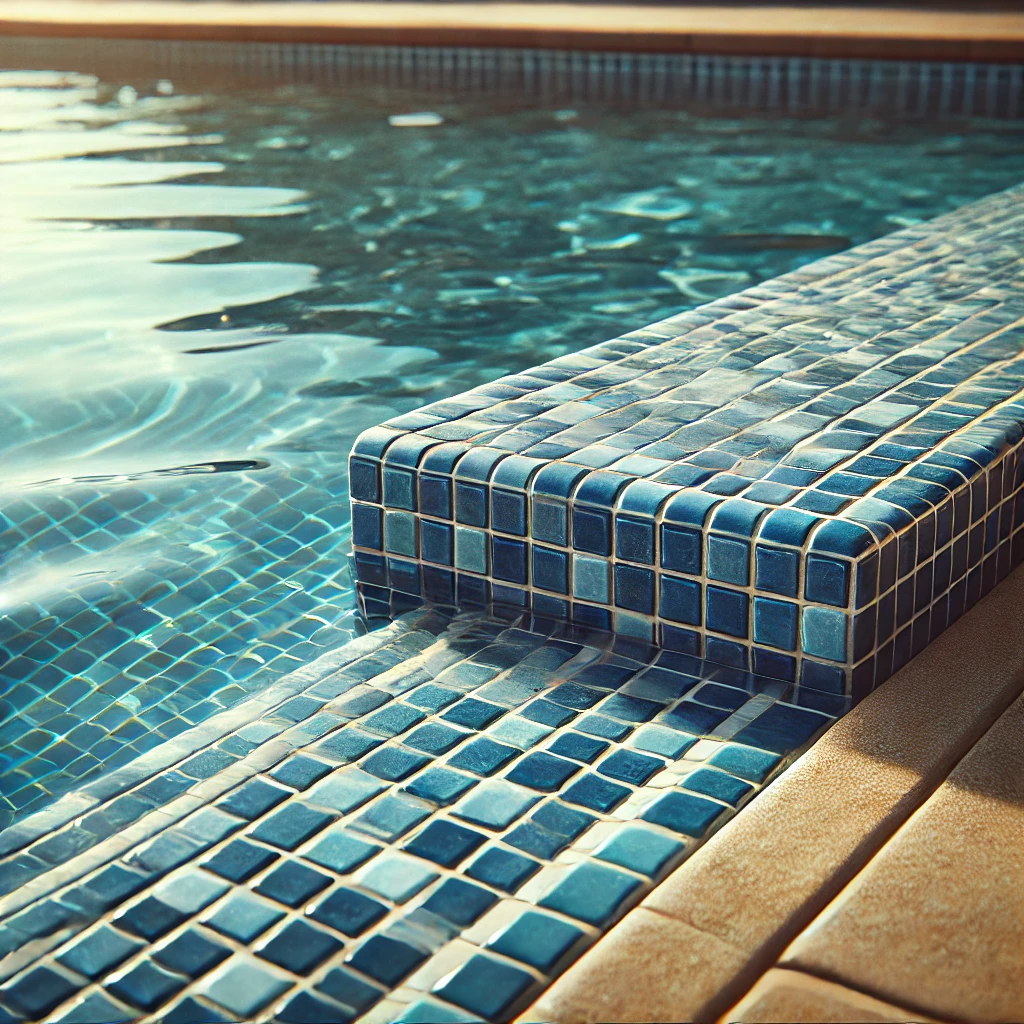Introduction
Outdoor spaces are becoming an increasingly important part of home design, where people seek to create a relaxing and aesthetically pleasing environment. One material that has gained significant popularity in these areas is mosaic tile. Known for its versatility, beauty, and wide range of design options, mosaic can elevate the appearance of pools, patios, gardens, and more. However, choosing the right mosaic for outdoor use requires careful consideration of durability as well as design. This article will guide you through key factors to keep in mind when selecting the best mosaic tiles for outdoor spaces, ensuring that they are not only visually appealing but also long-lasting.
1. Durability: Why It Matters for Outdoor Mosaic Tiles
The primary factor to consider when choosing mosaic tiles for outdoor use is their durability. Unlike indoor environments, outdoor spaces are subject to varying weather conditions, temperature fluctuations, and exposure to moisture. This makes it critical to choose materials that can withstand these challenges without degrading over time.
a. Weather Resistance
Mosaic tiles installed outdoors must be able to endure both hot summers and cold winters. Ceramic or porcelain tiles, for example, are excellent choices because they resist cracking and chipping even in extreme temperatures. Additionally, frost-proof tiles are a must for regions that experience freezing weather, as water can seep into tiles and cause them to crack when temperatures drop.
b. Moisture and Water Resistance
If you’re installing mosaic tiles in a pool, fountain, or outdoor shower, their resistance to water absorption is paramount. Glass and porcelain mosaics are highly recommended due to their low water absorption rates, which prevents them from swelling or warping in moist environments. Waterproof tiles ensure longevity and minimize the need for repairs or replacement.
c. UV Resistance
Outdoor areas are exposed to sunlight for long hours, and some materials may fade or discolor over time. For sunny spaces, choosing UV-resistant mosaic tiles is crucial. Glass mosaic tiles, for instance, are resistant to UV rays and maintain their vibrant colors even with prolonged exposure to sunlight.
2. Material Options for Outdoor Mosaic Tiles
When it comes to choosing outdoor mosaic tiles, selecting the right material is key. The material affects not only durability but also the overall aesthetic of your space. Below are some popular mosaic tile materials suited for outdoor use:
a. Glass Mosaic Tiles
Glass mosaic tiles are an ideal choice for outdoor settings like pools and fountains. They are resistant to moisture and UV rays, making them perfect for water features. The reflective nature of glass tiles adds a shimmering effect to spaces, creating a luxurious and modern appeal.
b. Porcelain and Ceramic Tiles
Porcelain and ceramic mosaic tiles are known for their durability, making them suitable for patios, walkways, and even pool decks. They offer a wide range of colors, patterns, and textures, allowing for both traditional and contemporary designs. Porcelain is particularly well-suited for outdoor areas due to its low water absorption rate and resistance to frost.
c. Natural Stone Mosaic Tiles
For those seeking a more natural, rustic look, stone mosaics made from materials like granite, marble, or travertine are an excellent option. These materials are inherently durable and weather-resistant, making them a popular choice for outdoor installations such as garden pathways or exterior walls. However, keep in mind that stone tiles may require sealing to maintain their appearance over time.
3. Slip Resistance: Safety First
Outdoor areas such as patios and pool surrounds need to be safe to walk on, especially when wet. Slip resistance is a vital factor to consider when selecting mosaic tiles for such spaces.
a. Textured Surfaces
Opt for mosaic tiles with textured or matte surfaces, which provide better traction underfoot. Textured porcelain tiles, for instance, offer slip resistance while still maintaining an elegant appearance. Avoid glossy or highly polished surfaces that can become slippery when wet, leading to potential accidents.
b. Grout Selection
Grout can also play a role in improving slip resistance. Using wider grout lines between mosaic tiles creates additional texture, making the surface less slippery. Additionally, choosing a grout with anti-slip additives can further enhance safety, especially in wet areas.
4. Design Considerations for Outdoor Mosaics
While durability is essential, the visual appeal of your outdoor space is equally important. Mosaic tiles provide endless design possibilities, allowing you to customize your outdoor area to suit your personal style. Here are a few design aspects to consider:
a. Color and Pattern
Outdoor spaces often benefit from brighter, more vibrant colors. You can choose mosaic tiles in bold blues and greens for a pool area to create a serene, water-like effect, or opt for neutral tones like beige and gray for patios and pathways to blend harmoniously with the natural surroundings. Additionally, consider using intricate patterns like geometric shapes, floral designs, or even custom murals to add a personal touch.
b. Reflective Qualities
Glass mosaics are particularly popular for their reflective qualities, especially around pools or water features. The shimmering effect of light reflecting off the surface of glass tiles creates a dynamic, ever-changing look throughout the day.
c. Blending with Nature
Natural stone mosaic tiles are perfect for blending outdoor spaces with nature. Their earthy tones and organic textures can enhance the natural landscape, whether in a garden, courtyard, or outdoor living area. Pairing stone mosaics with lush greenery or water elements can result in a cohesive, harmonious design.
5. Installation and Maintenance Tips for Outdoor Mosaics
Proper installation and maintenance are key to ensuring that your outdoor mosaic tiles remain in excellent condition for years to come. Below are some best practices:
a. Professional Installation
Given the complexities involved in outdoor installations, especially in areas exposed to moisture and varying temperatures, hiring a professional installer is recommended. Proper waterproofing and substrate preparation are critical to prevent issues like tile movement or water infiltration, which could lead to damage.
b. Sealing and Grouting
Certain mosaic materials, particularly natural stone, require sealing to protect them from moisture, dirt, and stains. Make sure to apply a high-quality sealant to your mosaic tiles after installation and reapply it periodically to maintain the tiles’ integrity. Additionally, choosing a grout that resists water and stains will help prevent discoloration and keep your outdoor space looking pristine.
c. Regular Cleaning
To keep your outdoor mosaics looking fresh and vibrant, regular cleaning is necessary. Use a non-abrasive cleaner that is safe for the tile material you have chosen. For glass and porcelain, a simple mixture of water and mild detergent should suffice, while natural stone may require special cleaners to avoid damaging the surface.
Conclusion
Choosing the right mosaic tiles for your outdoor space involves a careful balance between durability and design. By selecting materials that are resistant to weather, moisture, and UV rays, and by considering factors like slip resistance and visual appeal, you can create a stunning outdoor area that will stand the test of time. Whether you’re designing a serene poolside retreat or a cozy garden patio, the versatility of mosaic tiles makes them an excellent choice for any project. With proper installation and maintenance, your outdoor mosaic tiles will continue to impress for years to come.



